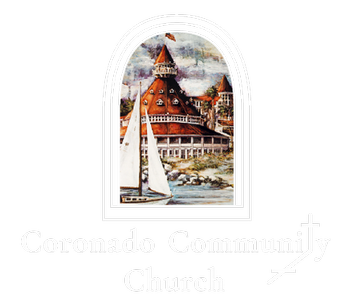Luke 14:1, 7-14
A sermon by Pastor Eric Smith
Published On: August 28, 2022
A sermon by Pastor Eric Smith
Published On: August 28, 2022
They call the city of Redlands, California the “jewel of the Inland Empire.” Karen and I think so, too. It is a wonderful city, and we were part of a wonderful congregation for six years which was, and still is, very dear to us.
One of the church members, Alice, was from India. Her family attended church with her now and then, but Alice was always there. The time came for her daughter, Deepali, to be married. She had met her beloved at an international conference. Matthew was Irish… from Ireland.
The wedding involved two ceremonies: the first was traditional Christian held in the sanctuary. Men in wedding suits, women in bridal gowns. Very nicely done (if I do say so myself). Guests from India and Ireland and other parts of the globe. Both families well represented. When the ceremony was complete there was a lovely cake and punch reception on the premises. Then we left to reconvene at the real reception venue which was several miles away.
Before the reception began a second wedding took place. It was, again, for Deepali and Matthew, but this was a traditional Hindu Indian wedding. Women were dressed in beautiful, colorful saris, jewels on their foreheads, men in formal Indian dress. The groom rode in on a traditional white horse. It was an eyeful and beautifully spectacular.
Then the party began. Indian food, Irish food, American food, and lots of wine. The music played… an Indian ensemble, and then an Irish ensemble. There was beautiful diversity in the multiple nationalities present. I recall, at one point, Matthew’s grandmother standing on top of a table, holding up her long skirt so she could dance a jig. Such shared joy!
We felt like we were in the Kingdom of God.
Jesus and the Biblical writers frequently used wedding feasts, banquets, parties, and dinner gatherings as illustrations and settings when speaking about the Kingdom of God. Our passage today is another example.
Jesus had been invited to a formal dinner – a sabbath dinner – in the home of a prominent Pharisee.
Here’s a bit of Biblical trivia…
For a moment, suspend all the negative associations that you have been subject to about how Pharisees were bad people. They weren’t. Pharisees were something akin to regular church folks from their era (you know, some are the most gracious folks around… others not-so-much… regular church folks).
Most of the negativity about Pharisees that has been passed to us through the New Testament was the result of later doctrinal tensions. Then add anti-Jewish sentiment.
But the Biblical issue is that Jesus championed (what we would now call) a progressive view of Biblical faith. The conservatives of the time… among them the Pharisees… could not abide it.
Now – as Jewish theological education went back then – Jesus was educated as a Pharisee. There is scholarly opinion that Jesus actually was a Pharisee, but it’s not the dominant opinion.
One of the most famous Pharisees of that time was Hillel the Elder (think Hillel Foundations at colleges). Jesus incorporated Hillel’s teaching into his own. Best example? The Golden Rule Jesus gave us… do unto others as you would have them do unto you? You know what I’m talking about? That came from Hillel’s teaching, do not do to others what you would not have them do to you. Jesus just framed it in the positive. Our Golden Rule came from a Pharisee! Don’t be too hard on them.
I’ve probably pushed you far enough with that one for now…
So Jesus was at a dinner party.
Today meals are more easily obtained by most of us than was the case in the Biblical world. Meals like this one were a big deal. Guests were invited… typically friends, relatives, and rich neighbors. It was a social gathering and there were social expectations.
Who to invite? Why invite them? There were many reasons – think of your last large dinner party and the thought that you put into who would be included… or who would not.
When guests arrived they were dressed in a special garment and had flowers in their hair (yes… the men). They were received by their host with a kiss and their feet were washed. Then head and feet were anointed with oil (think of the story of Mary anointing Jesus with costly nard).
The guests and the host then went to where the meal was to be served.
Seating arrangements and other proper etiquette for eating was of great importance. It was just good manners. There was a correct order of seating – a place for the most important and the least important and everyone in-between.
Here is the comment in our passage…
When Jesus noticed how the guests chose the places of honor,
he told them a parable.
We’re going to come back to that, first a bit more about how these meals went…
The guests reclined on couches that were large enough for three people. After everyone was in place servants came around and washed all of the guest’s hands for both cleanliness and as a religious ritual. Then a prayer of thanksgiving, and the meal was served.
The usual practice was to lie at a right angle to the table, propping yourself up with your left elbow and leaving your right hand free for eating. Eating with the right hand was universal practice (even for left handers). Left handed eating was insulting to everyone – you didn’t do it. No utensils were used. You dipped bread (think of Nan style bread) into a common bowl and ate.
So … formal dining with an impressive guest list. Jesus was likely the guest of honor.
You can figure he was invited because of his fame in the region. They expected to listen to him talk. Figure that it had to be that way, because what he said to them was …pretty much… insulting.
When you are invited by someone to a … banquet, do not sit down at the place of honor, in case someone more distinguished than you has been invited by your host; 9and the host who invited both of you may come and say to you, ‘Give this person your place,’ and then in disgrace you would start to take the lowest place. 10But when you are invited, go and sit down at the lowest place, so that when your host comes, he may say to you, ‘Friend, move up higher’; then you will be honored in the presence of all who sit at the table with you. 11For all who exalt themselves will be humbled, and those who humble themselves will be exalted.”
The Gospel author called it a parable but it was really a lecture on humility.
Back in seminary days all of we wanna’ be ministers had to take preaching class. There was nothing quite like standing up and preaching to a class of your peers whose mission was to critique your message and your delivery. Some classmates took their responsibility quite seriously. Very scary. At the conclusion of the sermon our professor had a segue from sermon to evaluation that always began … now… what can we say to Mr. Smith that will be helpful to him?
Toward the end of the semester our last preaching assignment was to come up with an unusual approach for our sermons. I had a classmate who did a nice job with this…
He prepared a sermon on “Humility and How I Achieved It.”
Taking his text loosely from Romans 12, he developed five points:
- I am humble
- I am getting humbler all the time
- I am proud of my humility
- I deserve a lot of credit for my humility because I have so much of which to be proud, and, finally
- even when I am bragging I am humble because I am a whole lot better that I say I am.
That approach would have fit nicely at this dinner party Jesus attended..
This basis of the word humility is humus, or earth. Earthiness. Connectedness. Grounded-ness. It means you have a good sense of who you are and a good sense of who you’re not.
The idea of humility, as we both understand it (and misunderstand it), originated with Jesus. The word existed in his day, but it was not considered a positive character trait. If you were humble you were weak. Humility and its attendant (so called) weakness are avoided by politicians and our culture in general. It’s an insult to be called out in the media as “weak.”
Jesus also said, “When you give a luncheon or a dinner, do not invite your friends or your brothers or your relatives or rich neighbors, in case they may invite you in return, and you would be repaid. 13But when you give a banquet, invite the poor, the crippled, the lame, and the blind. 14And you will be blessed, because they cannot repay you, for you will be repaid at the resurrection of the righteous.”
Jesus was probably having some fun with the affectations of his day – and at the expense of his dinner host and guests. But he was never shy about saying what he wanted said.
Those dinner party folks would have heard his parable and its conclusion as totally absurd – which was likely his intention. It was nonsensical, a subversion of culture, propriety, and good manners. Try losing to see what a big winner you’ll be? That’s crazy.
Using middle eastern hyperbole, he had laid out a vision of life he called the kingdom of God. It was and it is inclusive, all embracing, and a reward in itself. It was and is an alternate view of reality. It’s not the way of the world – then or now.
Eugene Peterson was a pastor and an author. He wrote a paraphrase of the Bible called “The Message,” (which is an excellent work if you haven’t read it). He also wrote The Jesus Way. In it he referred to Jesus’ words in John 14:
I am the way, and the truth, and the life…
His point was that the Jesus way wedded to the Jesus truth brings about the Jesus life. We can’t embrace the Jesus truth but then do it any old way we like. Nor can we follow the Jesus way without speaking the Jesus truth.
In present day America Jesus as the truth gets far more attention than Jesus as the way. The author said… Jesus as the way is the most frequently evaded metaphor among … American Christians.
This event was an introduction to a really different expression of spirituality for those friendly Pharisees who gathered to have a pleasant sabbath dinner together. Jesus was pleasant… and he was confrontive.
There was nothing more important to Jesus than inviting and encouraging people to take on this alternate reality. He said,
You will be blessed
Someday I expect we’ll have a big screen available so I can show you things during sermons. But today you’ll just have to imagine the image I want to show you now.
It’s a large post-it note on a refrigerator. A to-do list. A reminder to yourself. This is what it says…
This year I want to be more like Jesus…
- hang out with sinners
- upset religious people
- tell stories that make people think
- choose unpopular friends
- be kind, loving, and humble
- take naps on boats
and finally…
- go to more parties
… because Jesus loved a party.




